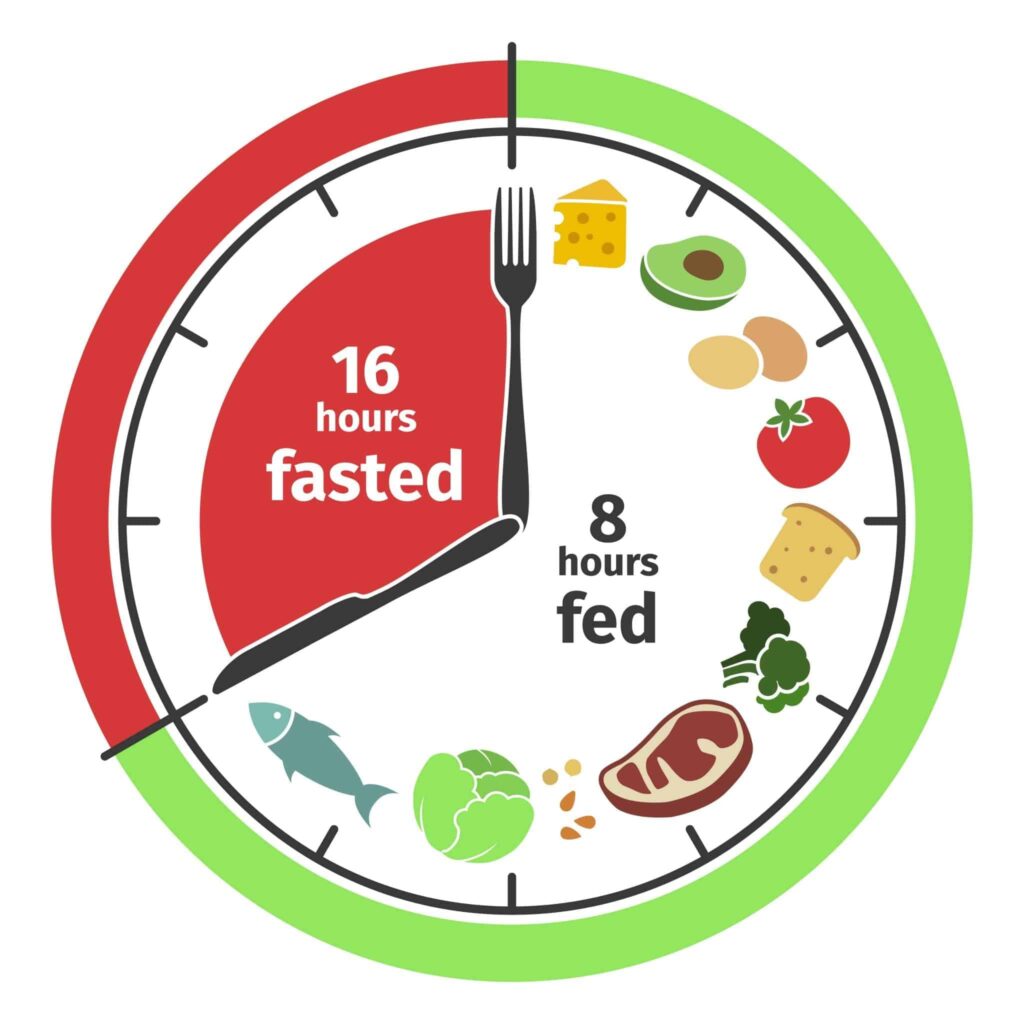Intermittent fasting is a popular dietary trend that has been gaining popularity in recent years. It is a method of eating that involves fasting for a certain period and then consuming food during a set window of time. One of the factors that can influence the effectiveness of intermittent fasting is BMI, or body mass index. In this blog post, we will discuss how to practice intermittent fasting based on BMI, its benefits and risks, and provide a comprehensive guide on this dietary trend.
Jump To:
What is Intermittent Fasting?
How to Practice Intermittent Fasting Based on BMI?
Benefits of Intermittent Fasting
Risks of Intermittent Fasting
How to Manage the Risks of Intermittent Fasting?
What is Intermittent Fasting?
Intermittent fasting is a dietary trend that involves fasting for a certain period and then eating during a set time period. There are several different methods of intermittent fasting, including the 16/8 method, the 5:2 method, and alternate-day fasting. These methods differ in the length of the fasting period and the eating window. However, the basic principle remains the same: eat during a certain period and fast during another.
How to Practice Intermittent Fasting Based on BMI?
BMI, or body mass index, is a measure of body fat based on height and weight. It is a useful tool for assessing whether a person is underweight, normal weight, overweight, or obese. The BMI can help determine the appropriate length of the fasting period and the eating window for an effective intermittent fasting.
Underweight: If your BMI is below 18.5, it is not recommended to practice intermittent fasting as it can lead to further weight loss and malnutrition. It is best to consult a healthcare professional to develop a healthy eating plan.
Normal weight: If your BMI is between 18.5 and 24.9, you can practice intermittent fasting for health benefits. The 16/8 method is a popular choice, where you fast for 16 hours and eat during an 8-hour window.
Overweight: If your BMI is between 25 and 29.9, intermittent fasting can be an effective method for weight loss. The 5:2 method, where you eat normally for five days and restrict calorie intake for two days, can be a suitable choice.
Obese: If your BMI is over 30, intermittent fasting can be an effective method for weight loss. The alternate-day fasting method, where you alternate between fasting and eating normally, can be a good choice.

Benefits of Intermittent Fasting
Intermittent fasting has several potential health benefits, including weight loss, improved metabolism, and reduced inflammation. Let’s take a look at some of the benefits in more detail:
- Weight loss: Intermittent fasting has been shown to be an effective way to lose weight and reduce body fat.
- Improved insulin sensitivity: IF can improve insulin sensitivity, which can help lower the risk of developing type 2 diabetes.
- Reduced inflammation: IF can reduce inflammation in the body, which is linked to numerous chronic diseases.
- Improved heart health: IF can improve heart health by reducing blood pressure, cholesterol levels, and triglycerides.
- Increased autophagy: Intermittent fasting can increase autophagy, a process where the body breaks down and recycles old or damaged cells.
- Improved brain function: IF has been shown to improve brain function and reduce the risk of neurological disorders such as Alzheimer’s disease.
- Increased longevity: Studies have shown that IF can increase lifespan and reduce the risk of age-related diseases.
- Improved gut health: IF can improve gut health by promoting the growth of beneficial gut bacteria.
- Increased energy: IF can increase energy levels by promoting the production of the hormone norepinephrine, which can increase focus and alertness.
- Improved sleep: Some studies suggest that IF can improve sleep quality and duration, which can have numerous health benefits.
Risks of Intermittent Fasting
Intermittent fasting may not be suitable for everyone, and it is important to be aware of the potential risks. Here are some of the risks associated with intermittent fasting:
- Malnutrition: Intermittent fasting can lead to malnutrition if the body does not receive sufficient nutrients during the eating window.
- Hunger: Intermittent fasting can cause hunger and cravings, which can be difficult to manage, particularly in the initial stages.
- Dehydration: Intermittent fasting can lead to dehydration, particularly if the fasting period is long.
How to Manage the Risks of Intermittent Fasting?
It is important to manage the risks associated with intermittent fasting to ensure its safety and effectiveness. Here are some tips to help manage the risks:
- Stay hydrated: Drink plenty of water and other fluids during the eating window to prevent dehydration.
- Eat nutrient-dense foods: Make sure to consume nutrient-dense foods during the eating window to ensure that the body receives sufficient nutrients.
- Start slow: If you are new to intermittent fasting, start slow and gradually increase the length of the fasting period.
- Listen to your body: Pay attention to how your body responds to intermittent fasting and adjust accordingly.
Conclusion:
Intermittent fasting based on BMI can be an effective method for weight loss and improving overall health. It is important to determine the appropriate length of the fasting period and the eating window based on BMI to ensure its safety and effectiveness. It is also important to be aware of the potential risks and manage them accordingly. By following the tips and guidelines outlined in this post, you can practice intermittent fasting based on BMI safely and effectively.
Important Links you may visit:
https://www.health.harvard.edu/blog/intermittent-fasting-surprising-update-2018062914156
https://www.medicalnewstoday.com/articles/319394
https://www.healthline.com/nutrition/16-8-intermittent-fasting
Disclaimer: It’s important to consult with a healthcare professional before starting any new dietary regimen. This post is for informational purposes only and is not intended to be a substitute for professional medical advice, diagnosis, or treatment. Please seek the advice of a qualified healthcare professional if you have any questions or concerns about practicing intermittent fasting based on BMI or any other dietary regimen

